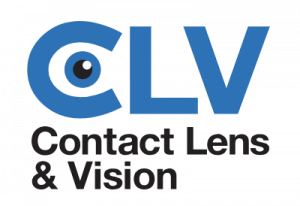
Macular degeneration, particularly age-related macular degeneration (AMD), is a leading cause of vision loss among individuals over 50 with studies showing that this condition affects over 19 million Americans. This condition affects the macula—the central portion of the retina responsible for sharp, detailed vision—leading to difficulties in reading, driving, and recognizing faces.
At Contact Lens and Vision in Woodbridge, we provide comprehensive care to diagnose, manage, and treat macular degeneration, helping our patients maintain optimal eye health.
Understanding Macular Degeneration
Macular degeneration is characterized by the deterioration of the macula, leading to central vision impairment. While peripheral vision remains unaffected, the loss of central vision can significantly impact daily activities. There are two primary types of AMD:
- Dry AMD: The more common form, accounting for approximately 85–90% of cases, involves the thinning of the macula and the accumulation of drusen (yellow deposits).
- Wet AMD: A less common but more severe form, where abnormal blood vessels grow beneath the retina, leading to leakage of blood and fluid.
Symptoms to Watch For
Early stages of macular degeneration may not present noticeable symptoms. However, as the condition progresses, individuals might experience:
- Blurred or distorted central vision: Straight lines may appear wavy or bent. Health
- Dark or empty areas in central vision: A spot or shadow in the center of your visual field.
- Difficulty recognizing faces or reading: Challenges with tasks requiring detailed vision.
Regular comprehensive eye exams are crucial for early detection, as timely intervention can slow progression and preserve vision.
Diagnosis at Contact Lens and Vision
At Contact Lens and Vision, our experienced optometrists utilize advanced diagnostic tools to detect and monitor macular degeneration:
- Comprehensive Eye Exams: Assess overall eye health and identify early signs of AMD.
- Optical Coherence Tomography (OCT): Provides detailed cross-sectional images of the retina to detect macular changes.
- Amsler Grid Test: A simple test to identify visual distortions indicative of macular issues.
Personalized Treatment Options
While there is no outright cure for macular degeneration, several treatment strategies can manage the condition effectively:
- Nutritional Supplements: High-dose formulations of antioxidants and zinc may reduce the risk of progression in intermediate and advanced stages.
- Anti-VEGF Injections: For wet AMD, medications like anti-vascular endothelial growth factor are injected into the eye to inhibit abnormal blood vessel growth.
- Low Vision Aids: Devices designed to enhance remaining vision, aiding in daily tasks.
Our team at Contact Lens and Vision tailors treatment plans to each patient's specific needs, ensuring optimal outcomes.
Preventative Measures and Lifestyle Adjustments
Adopting certain lifestyle changes can help reduce the risk or slow the progression of macular degeneration:
- Regular Eye Examinations: Early detection through routine check-ups is vital.
- Healthy Diet: Consuming foods such as leafy greens like kale and collard greens, fruits like papayas and figs, fish, and nuts supports eye health.
- Quit Smoking: Smoking significantly increases the risk of AMD.
- Protective Eyewear: Wearing sunglasses to shield eyes from harmful UV light.
Schedule Your Eye Exam Today
If you notice any changes in your vision or have concerns about macular degeneration, don't hesitate to reach out. At Contact Lens and Vision in Woodbridge, we're dedicated to providing comprehensive eye care tailored to your needs.
Contact us today to request your appointment and take proactive steps toward preserving your vision.
